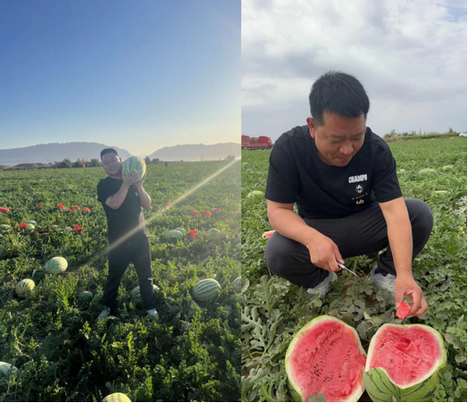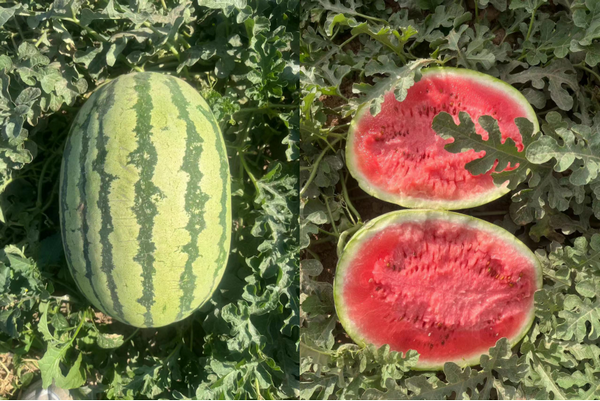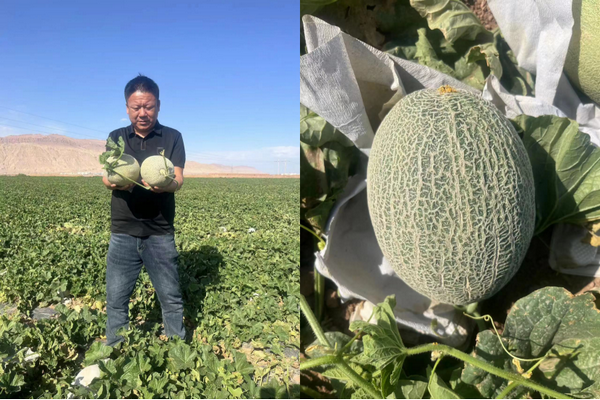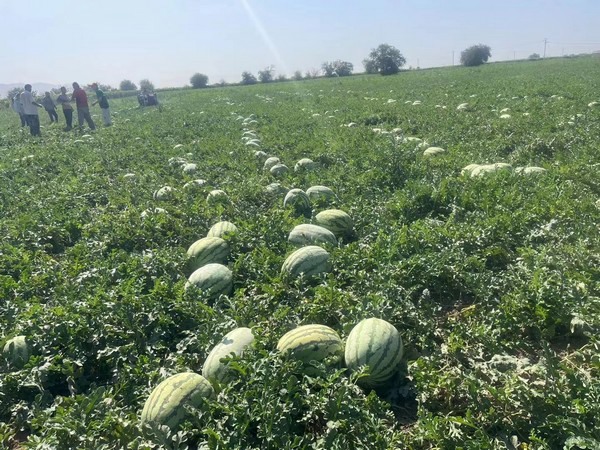Selenium sand melons (Gobi watermelons) in Turpan, Xinjiang began to be picked at the end of May. The production season is about one month, and the first batch of melons has been sold to different regions. Mr. Zhou Junlin from Shaanxi Tangsen Fruits and Vegetables Professional Cooperatives is harvesting these melons in Turpan. Mr. Zhou said that this year, the local production is satisfactory, but the two touches of frost around May Day delayed the ripening and the production.

"It has rarely rained in the production area of Turpan in the past, but this year there is relatively more rain, which makes the sweetness of melons about 2% lower than before, and the Brix is about 12-13%. In addition, the area experienced two frosts during the production season, which made the size of the melons smaller than in previous years. Normally the melon is quite large. In the past, 80% of the melons weighed about 12-13 kg. This year, about 70% of the melons weighed 10 kg. "
"The current price is roughly the same as that of the year before the pandemic. The price of the first batch of melons fell from 2.2/kg to 1.6/kg at the beginning of this week. The decline and price are within the normal range. Sales are currently slow. In the past, it took about 2-3 days to sell a truckload, but now it takes 4-5 days to sell in some areas. "

Compared with the traditional large melons, many smaller melons and new varieties have appeared in the watermelon market in recent years, which are quite popular. Talking about the impact of this on traditional varieties, Zhou believes that the two are in different market segments: "The traditional variety is the most suitable for the widest range of people because of its high ratio of cost performance; while the emerging Ganmei and Qilin melons are quite popular, but their prices are 2-3 times that of traditional varieties. The two are suitable for different consumer classes and are not in direct competition. "

In addition, Zhou also mentioned the situation of Turpan Xizhou melons this season. "Xizhou honeydew melons began to be harvested in mid-May. The greenhouse honeydew melons have now finished the season, and the open-field honeydew melons will be on the market until the end of June. Similar to the selenium melons, due to frost and rain this year, the size and sweetness of Xizhou honeydew melons have been reduced. The commodity rate has dropped from 80% in previous years to 70% this year. At present, the price is stable and the sales are smooth. In terms of channels, selenium melons are basically sold in markets or fruit stores, while half of Xizhou honeydew melons are sold through e-commerce channels. "

Turpan's selenium melon production season ended at the end of June, and Ningxia's selenium melons will take over in July, and the grape season in Turpan will also start at the end of June.
Shaanxi Tangsen Fruits and Vegetables Professional Cooperatives are mainly engaged in apples from Shaanxi, Gansu, and Shanxi production areas, and honeydew melons from Shaanxi, Gansu, Inner Mongolia, and Xinjiang. The channels include wholesale markets, supermarkets, and e-commerce. The selenium melons harvested are being sold to Shenyang, Huludao, Dandong and other channels in Liaoning.
